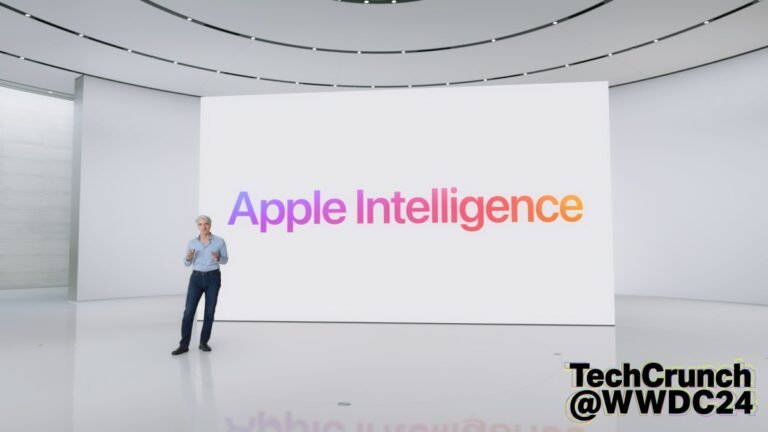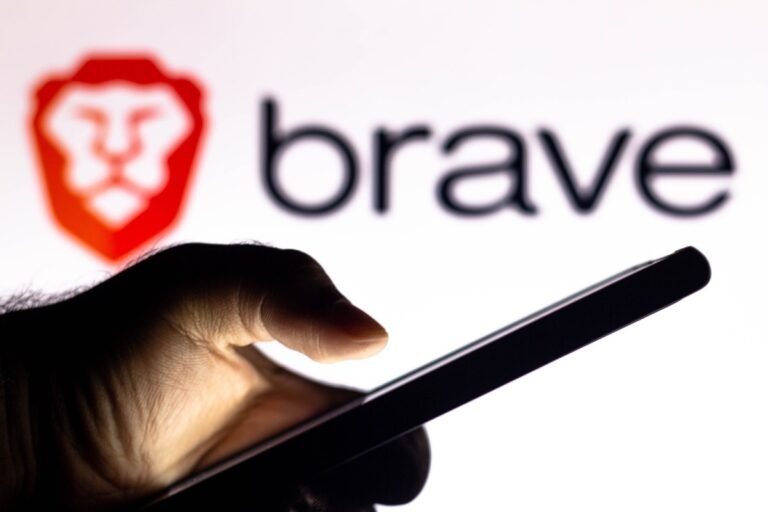
Apple announced a deal with OpenAI to bring ChatGPT, OpenAI’s AI-powered chatbot experience, to a range of its devices.
Here’s a roundup of a few of the more noteworthy Apple AI announcements from WWDC 2024.
New SiriSiri got a makeover courtesy of Apple’s overarching generative AI push this year, called Apple Intelligence.
To take advantage of the new Siri, you’ll need an Apple device that supports Apple Intelligence — specifically the iPhone 15 Pro and devices with M1 or newer chips.
Apple Intelligence will have an understanding of who you’re chatting with, Apple says — so if you want to personalize the chat with a custom AI image, you can do so on the fly.

“The real cause of the environmental crisis is partially citizens, but not entirely.
The first responsibility falls on the state, the political decision makers and the companies.”The free app, which does not require an account to use, queries you about your lifestyle.
The MyGlimpact app then takes that data and runs it through the company’s cloud-based software, which assesses a person’s impact in each of 16 categories.
If everyone lived like me, we’d require the resources of 2.93 Earths, according to the app.
The idea of an environmental footprint, not just a carbon footprint, has been around for a while.

Not all generative AI models are created equal, particularly when it comes to how they treat polarizing subject matter.
They found that the models tended to answer questions inconsistently, which reflects biases embedded in the data used to train the models, they say.
“Our research shows significant variation in the values conveyed by model responses, depending on culture and language.”Text-analyzing models, like all generative AI models, are statistical probability machines.
Instrumental to an AI model’s training data are annotations, or labels that enable the model to associate specific concepts with specific data (e.g.
Other studies have examined the deeply ingrained political, racial, ethnic, gender and ableist biases in generative AI models — many of which cut across languages, countries and dialects.

Google on Thursday said it is rolling out NotebookLM, its AI-powered note-taking assistant, to over 200 new countries, nearly six months after opening its access in the U.S.
The list of countries that NotebookLM now supports includes Australia, Brazil, Canada, India, and the U.K., as well as 208 other countries and territories.
It uses AI to help generate summaries and answer questions from documents, transcripts, notes and other sources that users can upload.
Some early users of NotebookLM in the U.S. anticipated it would support traditional note-taking apps, including Evernote and Google Keep.
Gemini 1.5 Pro also lets NotebookLM have up to 50 sources in each notebook, with 500,000 words per source.

Brave announced on Wednesday that it’s bringing its AI assistant, called Leo, to iPhone and iPad users.
The iOS launch of Leo brings voice-to-text capability, which isn’t available in the Android version of the AI assistant.
By giving access to a built-in AI assistant, Brave is hoping users won’t turn to ChatGPT or other similar services.
Brave isn’t the only browser company to launch an AI assistant; Opera launched an AI assistant called Aria last year.
To access Leo, open the browser, start typing in the address bar and then select “Ask Leo.” Leo is an opt-in feature and can be disabled via the app’s settings.

The vulnerability is a new one, resulting from the increased “context window” of the latest generation of LLMs.
But in an unexpected extension of this “in-context learning,” as it’s called, the models also get “better” at replying to inappropriate questions.
So if you ask it to build a bomb right away, it will refuse.
But if you ask it to answer 99 other questions of lesser harmfulness and then ask it to build a bomb… it’s a lot more likely to comply.
If the user wants trivia, it seems to gradually activate more latent trivia power as you ask dozens of questions.

X.ai, Elon Musk’s AI startup, has revealed its latest generative AI model, Grok-1.5.
Grok-1.5 benefits from “improved reasoning,” according to X.ai, particularly where it concerns coding and math-related tasks.
One improvement that should lead to observable gains is the amount of context Grok-1.5 can take in compared to Grok-1.
Context, or context window, refers to input data (in this case, text) that a model considers before generating output (more text).
The announcement of Grok-1.5 comes after X.ai open sourced Grok-1, albeit without the code necessary to fine-tune or further train it.

Crafting the perfect venture capital pitch is so simple that there’s an industry of consultants to help founders get their decks in order.
TechCrunch has a long-running series of Pitch Deck Teardowns to help founders, and you can find an infinite number of Twitter threads on the subject.
Enter Wing Venture Capital’s Sara Choi, who will give a talk at TechCrunch Early Stage 2024 this April and take audience questions on how to pitch.
After all, when venture capital is harder to raise than it has been in years, nailing the pitch is critical for today’s early-stage founders.
Early Stage 2024 is just around the corner, so book your pass here before March 29 and save $200.

We’re getting closer to this year’s Early Stage get-together in Boston, which means that it’s time to add three more names to our ever-expanding list of whip-smart speakers coming to present, and answer your most burning questions.
Today, I’m stoked to announce that Felicis’s Tobi Coker, Quotient AI’s Julia Neagu, and Cellino’s Nabiha Saklayen will be on-site and ready to rock next month.
Regular TechCrunch readers will recall that Cellino won our 2021 Battlefield event.
How to calculate TAM is no small question, and it’s too big a topic to fit inside any single acronym.
Is your company interested in sponsoring or exhibiting at TechCrunch Early Stage 2024?

Sarah Kreps is a political scientist, U.S. Air Force veteran and analyst who focuses on U.S. foreign and defense policy.
She’s a professor of government at Cornell University, adjunct professor of law at Cornell Law School and an adjunct scholar at West Point’s Modern War Institute.
Kreps’ recent research explores both the potential and risks of AI tech such as OpenAI’s GPT-4, specifically in the political sphere.
In an opinion column for The Guardian last year, she wrote that, as more money pours into AI, the AI arms race not just across companies but countries will intensify — while the AI policy challenge will become harder.
Developing AI in these publicly interested way seemed like a valuable contribution and interesting interdisciplinary work for political scientists and computer scientists.













